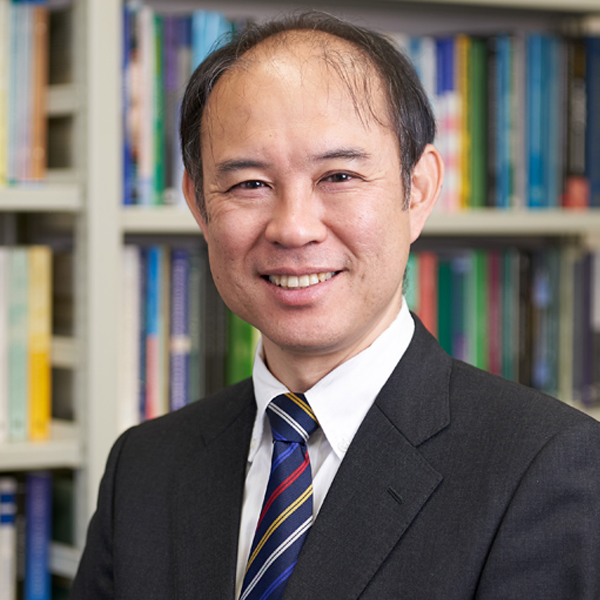
略歴Career
学歴
1. 東京大学 教養学部 教養学科第三 国際関係論分科 1993/03 卒業
2. 一橋大学大学院 法学研究科 公法・国際関係専攻 博士前期 1995/03 修了
3. メリーランド大学大学院 政治学研究科 修士 2003/05 修了
4. 一橋大学大学院 法学研究科 公法・国際関係専攻 博士後期 2006/03 満期退学
経歴
1. 島根県立大学 総合政策学部 准教授 2007/04/01-2010/03/31
2. 島根県立大学 総合政策学部 教授 2010/04/01-2019/03/31
3. ベルリン自由大学 環境政策研究所 客員研究員 2015/7-2016/3
4. 広島市立大学 広島平和研究所 教授 2019/04/01-現在
Academic background
1. The University of Tokyo, The Social Studies Division, Department of Liberal Arts in the College of Arts and Sciences, 1993/03, Graduated
2. Hitotsubashi University, Graduate School of Law, Master’s Program, 1995/03, Completed
3. The University of Maryland, Graduate School, Department of Government and Politics, Master course, 2003/03, Completed
4. Hitotsubashi University, Graduate School of Law, Doctoral Programe, 2006/03, Withdrawn after completion of required course credits
Career
1. Associate Professor, The University of Shimane, Faculty of Policy Studies, 2007/04/01-2010/03/31
2. Professor, The University of Shimane, Faculty of Policy Studies, 2010/04/01-2019/03/31
3. Visiting Researcher, Freie Universität Berlin, Environmental Policy Research Centre, 2015/7-2016/3
4. Professor, Hiroshima City University, Hiroshima Peace Institute, 2019/04/01-present
研究テーマResearch Theme
私の主たる研究テーマは国際的な環境問題の国際制度形成と発展です。1992年に開催された国連環境開発会議(地球サミット)に参加したことをきっかけに、国際的な政策立案の現場での議論を知ることが重要だと痛感しました。1995年から毎年開催されている国連気候変動枠組条約締約国会議には、毎年参加し続けています。この他、数多くの国際会議に参加し、国際環境問題に国際政治がどのように対応しているのか、参与観察を続けてきました。その過程で、政府のみならず多くのステークホルダーがグローバル・イシューに関与する必然性と重要性を理解し、グローバル・ガバナンスの研究の重要性を実感しました。今後は、持続可能な開発目標(SDGs)のような、国際開発、地球環境、人間の安全保障などが多様に関連するグローバル・イシューにも関心を広げ、地球上の人々が平和に暮らし続けるために国際社会はどのように取り組んでいるのか、といった研究を進めていきたいと考えています。
My main research theme is international regime processes on global environmental issues. When I attended the United Nations Conference on Environment and Development in 1992, I felt strongly that I needed to join the field of international policy making to understand arguments by various stakeholders. I have been participating in the Conference of the Parties to United Nations Framework Convention on Climate Change since 1995. Additionally, I have been conducting participatory fieldwork by attending various international conferences to understand how does international society react to global and international environmental issues. In the course of my field work, I found the necessity and importance of participation not only from governments but also from various stakeholders to formulize and practice international action to tackle global issues such as environmental issues. From that experience, I realized the importance of global governance research. I want to expand my research to global issues such as Sustainable Development Goals (SDGs), which overlap international development, global environment and human security. Through the research, I work to address issues to facilitate having a peaceful life in this world.
大学生の皆さんへMessage to Students
大学では、学ぶ分野の後に「学部」という名称がついていました。大学院では分野の後に「研究科」という名称がついています。このように、大学は「学ぶ」場であるのに対し、大学院は「研究する」場なのではないか、というのが私の理解です。もちろん、「学ぶ」より「研究する」ほうが、より主体的なイメージを受けます。
私は、これまで国際関係論を学び、研究テーマとして地球環境問題を選びました。当時としては珍しい研究テーマ設定で、国際関係論から分析する先行研究も少なかった記憶があります。そのため、他分野の研究蓄積も学び、学際的な考え方を知ることができました。このプロセスで学んだことは、主体的に研究テーマを設定すること、研究テーマを具体化すること、研究テーマに対する適切な答えを見つけることの三つです。
大学院生は、自らの研究関心に基づき、テーマを設定することがまず求められます。研究を進めるモチベーションはあなたの中にあります。そのモチベーションを支える知的好奇心を深めることができる研究テーマは、あなたにしか決定できないのです。次に、本や論文を読んで事実関係や分析技法を学ぶことは、学生諸君の自らの力である程度できることだと思います。それらの作業を行っていることを前提に、私の講義や演習では、どのように受講生諸君が考えているのかを、対話を通じて提示してもらうことを期待しています。その過程で、研究テーマの具体化や研究テーマに対する適切な答えの在り方がおぼろげながら見えてくると思います。自らの頭で考えることをあきらめない姿を、学生の皆さんには期待します。そして、考え抜いた「あなたの」アイディアについて討論することを楽しみにしています。
To express a department at a university in Japan, undergraduate education uses the letter “学(study),” while graduate education uses the letter “研究(research).” Thus, my understanding is that universities ask undergraduate students to “study,” but ask graduate students to "research." It is clear that “research” requires more independent work.
I have studied international relations and chose global environmental issues as a research topic when I entered graduate school. At that time, very few students chose environmental issues as a research topic. In addition to that, scant literature covered global environmental issues from an international relations perspective. Thus, I had to study other disciplines covering environmental issues, and it helped me to develop an interdisciplinary mind. This experience taught me three things; to set research topics independently, to specify research questions, and to find appropriate answers to the research questions.
Graduate students are asked to set research topics based on your interests, as a first step. Motives to carry out your research are in yourself. You are the only person who can decide your research topic based on your intellectual curiosity. The second step is to learn methodology and to study background knowledge about your research topic from the existing literature. Based on your endeavor on the second step by yourself, I expect students to show his/her arguments through dialogue at lectures and seminars. Through the discussion, you may gradually find how to clarify your research questions and to find appropriate answers. My expectation to students is: “do not give up thinking by yourself.”
I am looking forward to having a discussion based on your "original" idea.
